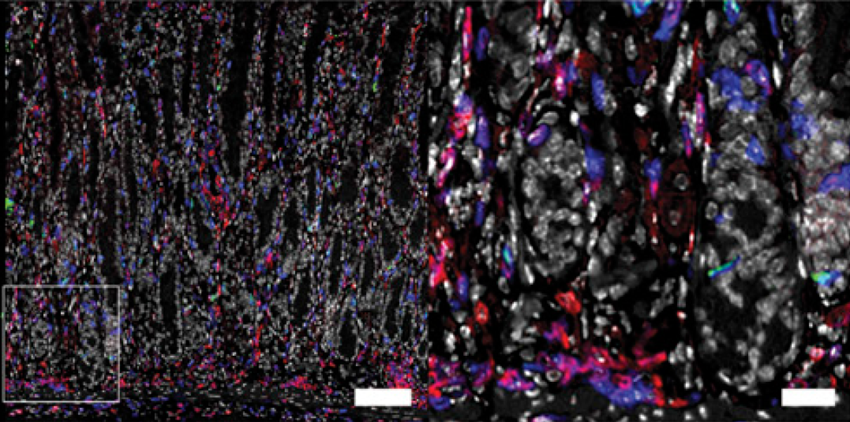Valerie O’Brien, PhD
Post-Doctoral Research Fellow
Fred Hutchinson Cancer Research Center
Automated detection and quantitation of gastric immune cells in a mouse model of Helicobacter pylori-driven preneoplastic progression
Date: 21 October 2021
Time: 8:00 – 9:00 PST | 11:00 – 12:00 EST | 16:00 – 17:00 GMT
Location: Webinar
Summary
Learning Objectives
- Learn about a mouse model to study Helicobacter pylori (Hp)
- Learn how HALO software detects and enumerates immune cell subsets
- Learn how Vectra Polaris images were spectrally unmixed in Akoya inForm software and analyzed in HALO to quantify T cells and macrophages in Hp+/KRAS+ mice
This webinar is ideal for infectious disease researchers, pathologists, attending physicians, image analysts, and others working in digital pathology.
Presenters

Valerie O’Brien received her Ph.D. in Molecular Microbiology and Microbial Pathogenesis from Washington University in St. Louis. She is currently investigating gastric cancer as a post-doctoral research fellow in the Salama lab at Fred Hutchinson Cancer Research Center. The vast majority of gastric cancers are attributable to stomach infection with the bacterium Helicobacter pylori (Hp), which elicits chronic inflammation that drives gastric pathology. However, the mechanism(s) through which chronic Hp infection and associated inflammation lead to gastric cancer are not well understood. Dr. O’Brien’s work integrates a novel mouse model of gastric preneoplastic progression, bacterial genetics and studies of human samples to investigate mechanisms of Hp-driven inflammation and disease.

Paul Kong
Research Technologist
Fred Hutchinson Cancer Research Center
Paul has over 15 years of experience in anatomical pathology with an emphasis on immunohistochemistry, including stints at PhenoPath Laboratories as a research technologist and CRO lab supervisor and at Leica Biosystems as a Field Applications Specialist. Currently, he is a research technologist at Fred Hutchinson Cancer Research Center specializing in multiplex immunohistochemistry panel development, digital pathology, and Halo image analysis.
